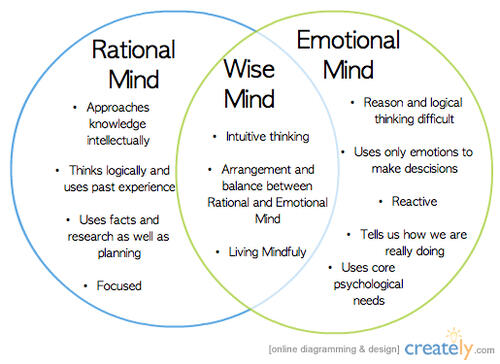What is NPD?
The term "narcissism" comes from a first century book (written in the year 8 AD) by the Roman poet Ovid. Metamorphoses Book III tells the mythical story of a handsome young man, Narcissus, who spurns the advances of many potential lovers. When Narcissus rejects the nymph Echo, who was cursed to only echo the sounds that others made, the gods punished Narcissus by making him fall in love with his own reflection in a pool of water. When Narcissus discovers that the object of his love cannot love him back, he slowly pines away and dies.Narcissistic personality disorder is a mental disorder characterized by a life-long pattern of exaggerated feelings of self-importance, an excessive craving for admiration, and a diminished ability to empathize with other's feelings. These personality traits are often overcompensation for a fragile ego, an intolerance of criticism, and a weak sense of self.
- Diagnostic Criteria:A pervasive pattern of grandiosity (in fantasy or behavior), need for admiration, and lack of empathy, beginning by early adulthood and present in a variety of contexts, as indicated by five (or more) of the following:1. Has a grandiose sense of self-importance (e.g., exaggerates achievements and talents, expects to be recognized as superior without commensurate achievements).
2. Is preoccupied with fantasies of unlimited success, power, brilliance, beauty, or ideal love.
3. Believes that he or she is “special” and unique and can only be understood by, or should associate with, other special or high-status people (or institutions).
4. Requires excessive admiration.
5. Has a sense of entitlement (i.e., unreasonable expectations of especially favorable treatment or automatic compliance with his or her expectations).
6. Is interpersonally exploitative (i.e., takes advantage of others to achieve his or her own ends).
7. Lacks empathy: is unwilling to recognize or identify with the feelings and needs of others.
8. Is often envious of others or believes that others are envious of him or her.
9. Shows arrogant, haughty behaviors or attitudes.
Dialectical behavior therapy (DBT) is a modified type of cognitive behavioral therapy (CBT). Its main goals are to teach people how to live in the moment, develop healthy ways to cope with stress, regulate their emotions, and improve their relationships with others.DBT was originally intended to treat borderline personality disorder (BPD), but it has been adapted to treat other mental health conditions.
Mindful Skills

Observe: Observe your thoughts, feelings and experiencesDescribe: Describe your thoughts, feelings, and experiencesParticipate: Enter into the event
One-Mindfully: Do one thing at a time and completely focus on what you are doingNon-Judgmentally: Observe don't judgeEffectively: Do what works in a situation
Distress Tolerance Skills
STOP: Stop, Take a step back, Observe, Proceed MindfullyTIP: Temperature, Intense Exercise, Paced Breathing/Paired Muscle Relaxation/Progressive Muscle Relaxation (change your level of distress quickly)Distract using Wise Mind ACCEPTS: Distract yourself with Activities, Contributing, Comparisons, Emotions, Pushing away, Thoughts, SensationsSelf-Soothe: Use the senses (vision, hearing, taste, smell, touch) to soothe your physical self in order to make your emotions less painful.IMPROVE the Moment: Improve the moment with Imagery, Meaning, Prayer, Relaxation, One thing in the moment, Vacations, EncouragementPros and Cons: Examine the short term and long term pros and cons of acting and not acting on your urges/impulses using a chart.Radical Acceptance/Reality Acknowledgement: Acknowledge what is, let go of fighting or denying reality. Use TURNING THE MIND to commit to acknowledgement over and over again.
Interpersonal Effectiveness Skills
Clarified Priorities: What is most important to you in this interpersonal interaction 1) Obtaining your objective, 2) Maintaining the relationship, or 3) Maintaining your self-esteem/sense of self-worthDEAR MAN: Describe, Express, Assert, Reinforce, stay Mindful, Appear confident, Negotiate (used for saying “no” or asking for something; obtaining your objective)GIVE: Be Gentle, act/be Interested, Validate, use an Easy manner (used for maintaining a relationship)FAST: Be Fair, no Apologies, Stick to values, be Truthful (used to maintain your self-esteem/sense of self-worth)
Emotional Regulation Skills
PLEASE: Treat PhysicaL illness, balance Eating, avoid mood-Alerting drugs (as in street drugs or non-prescription drugs), balance Sleep, get ExerciseABC: Accumulate Positive Emotions/Experiences: Do pleasant things that are possible now. Make changes in your life so that positive events will occur more often.ABC: Build Mastery: Engage in activities that make you feel competent and in control.ABC: Cope Ahead: Rehearse a plan ahead of time so that you are prepared to cope skillfully with emotional situations.Opposite Action: Change emotions by acting opposite to current emotions/urges. Used for when emotions don’t fit the facts of a situation.Check the Facts: Check out whether your emotions or behavior fit the facts of the situation. Changing beliefs and assumptions to fit the facts can help you change your emotional reactions to situations.Problem Solve: When the facts themselves are the problem, solving emotional problems consistently and effectively will reduce the frequency of negative emotions and increase your sense of competency in regards to dealing with these emotions/urges.